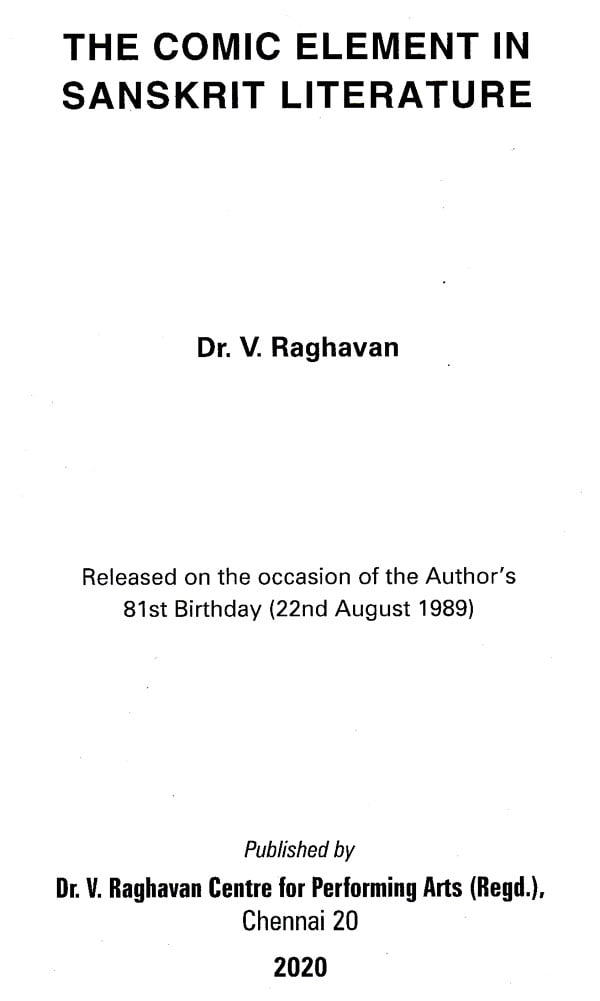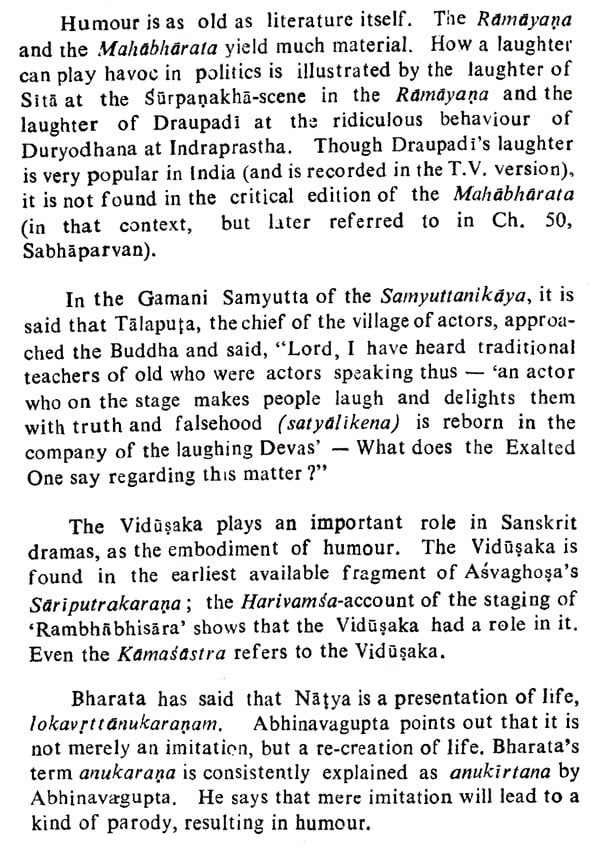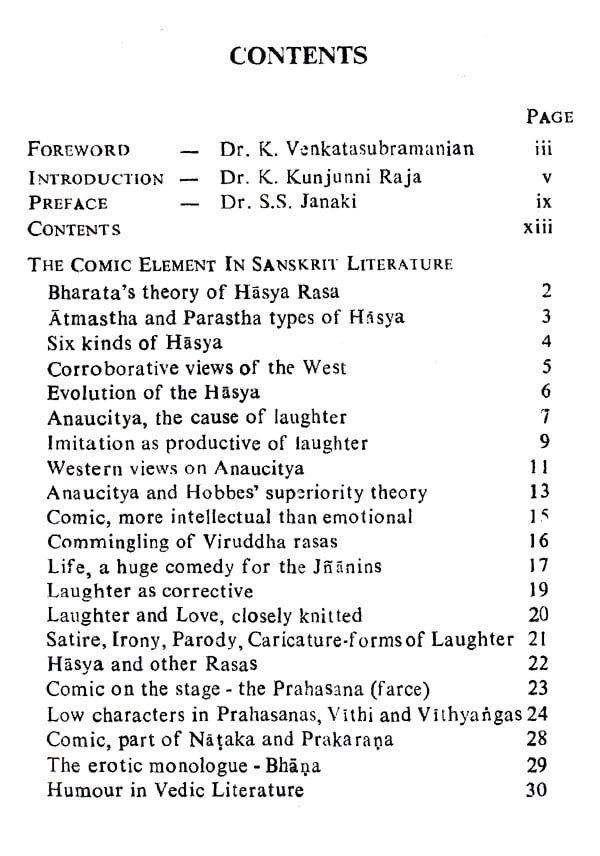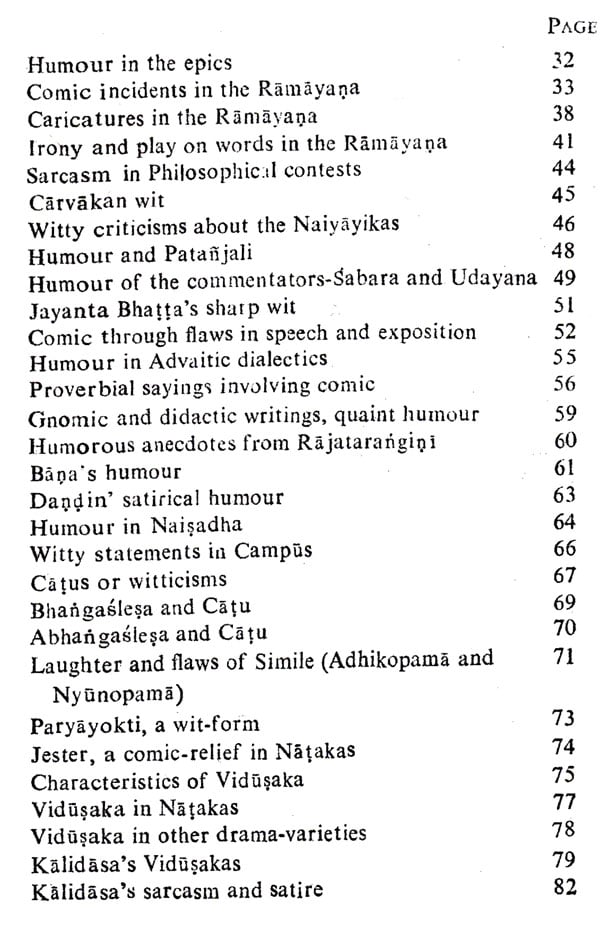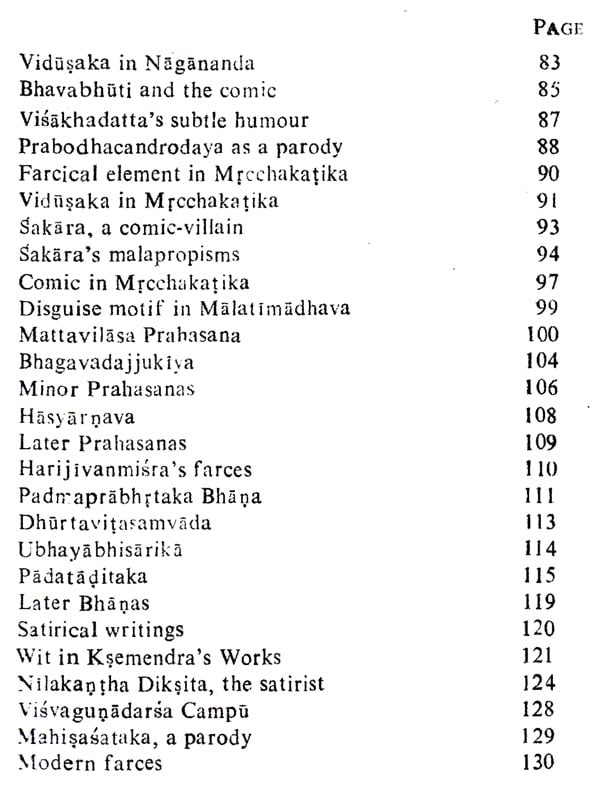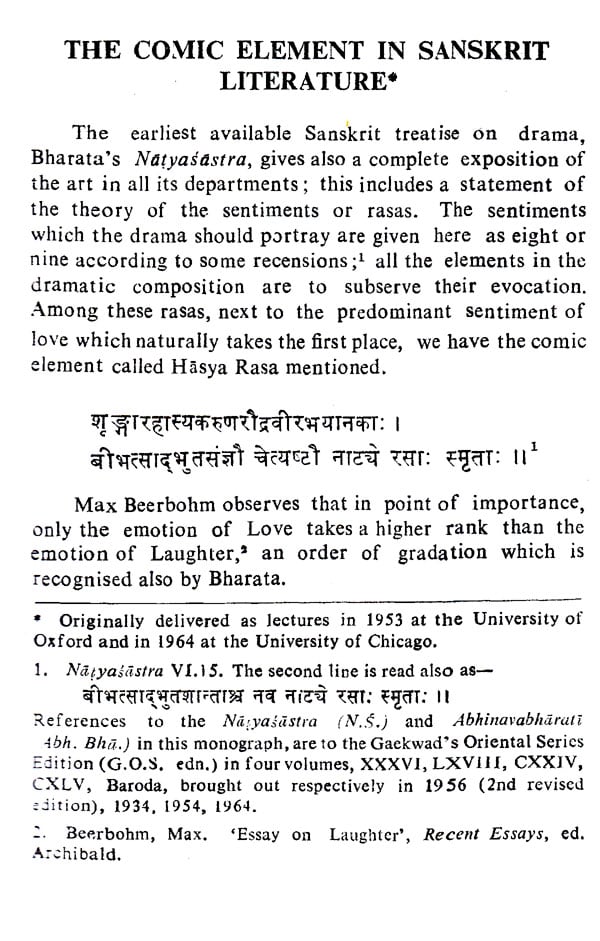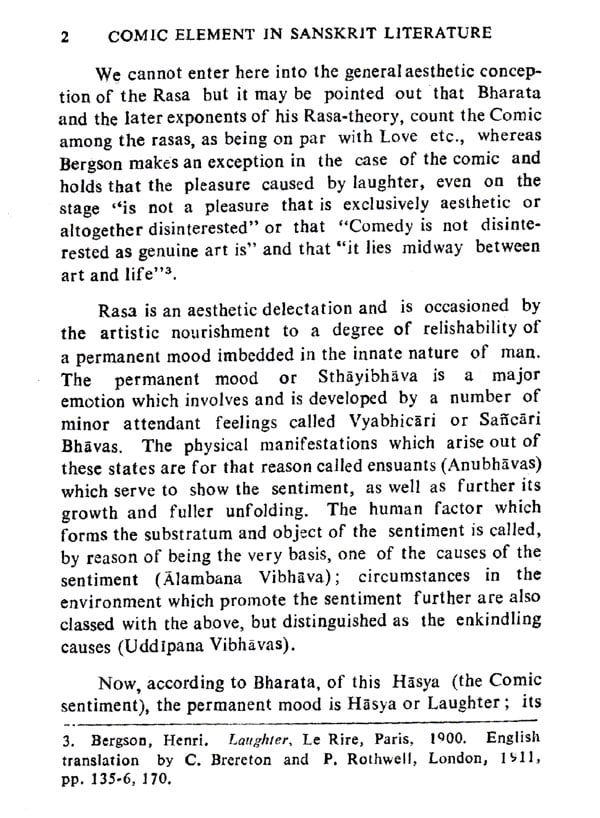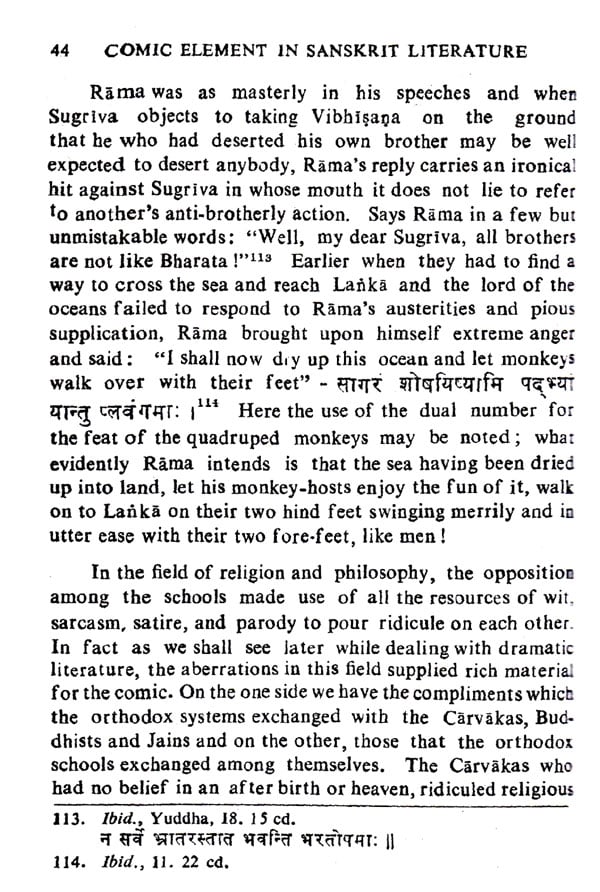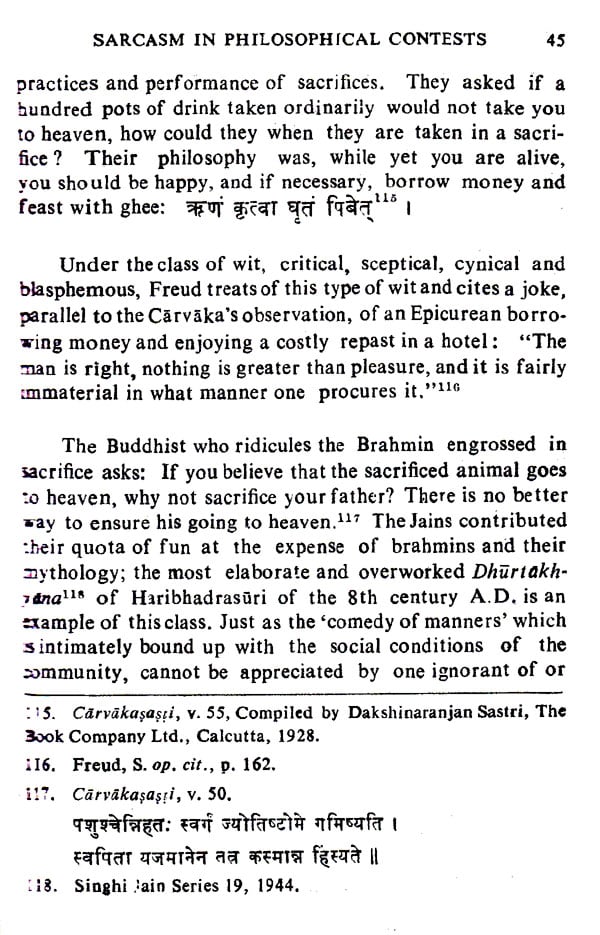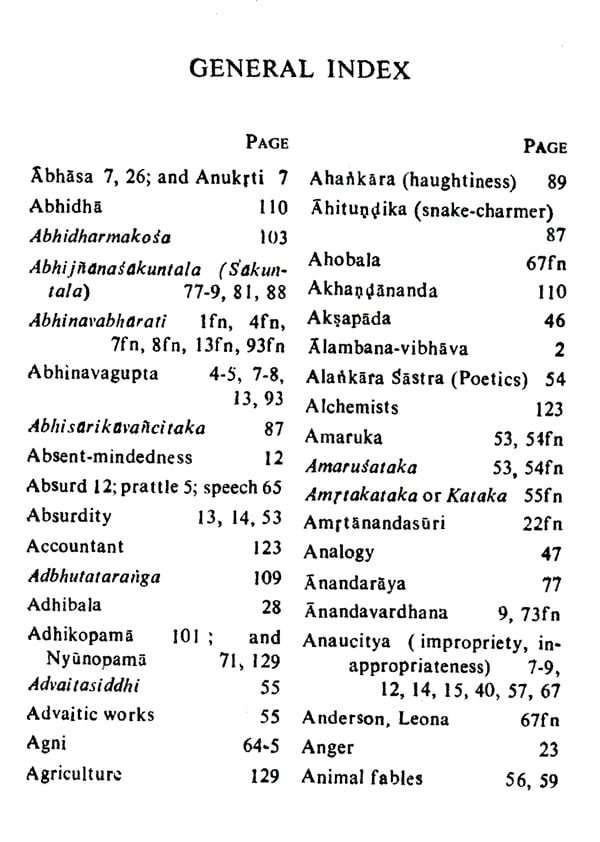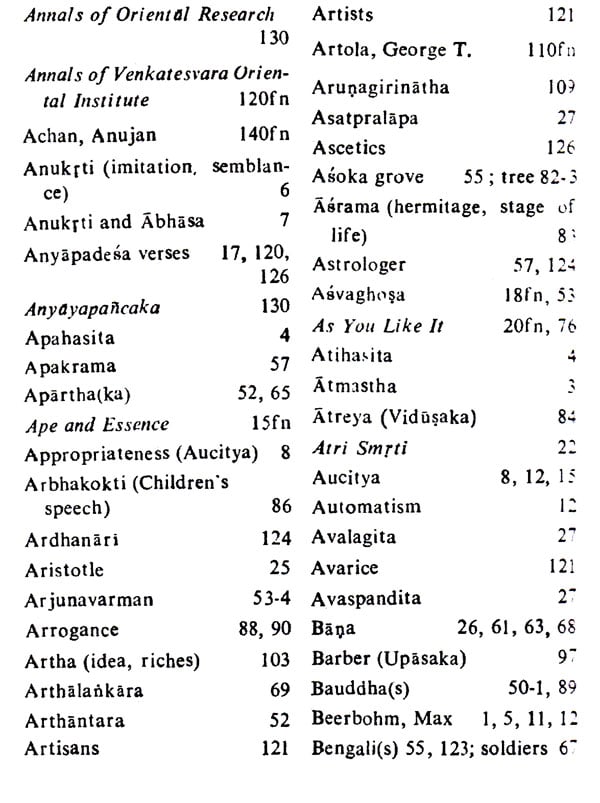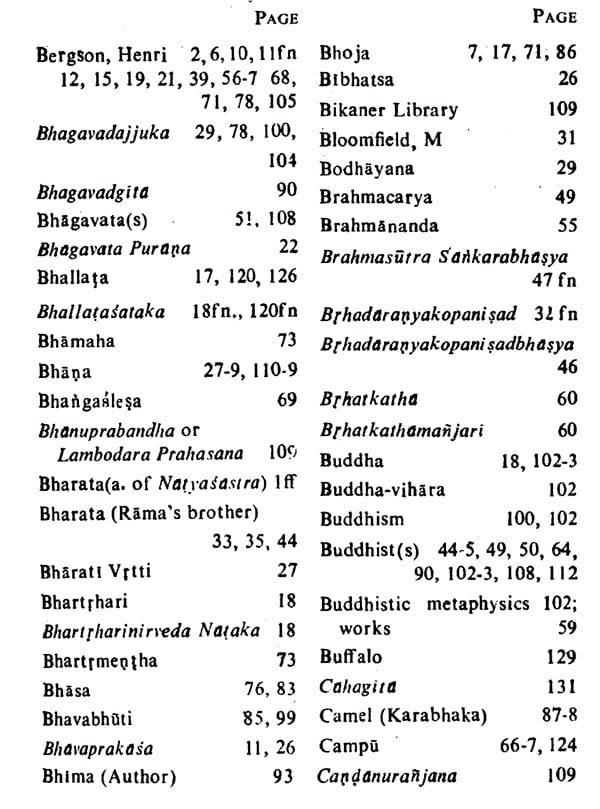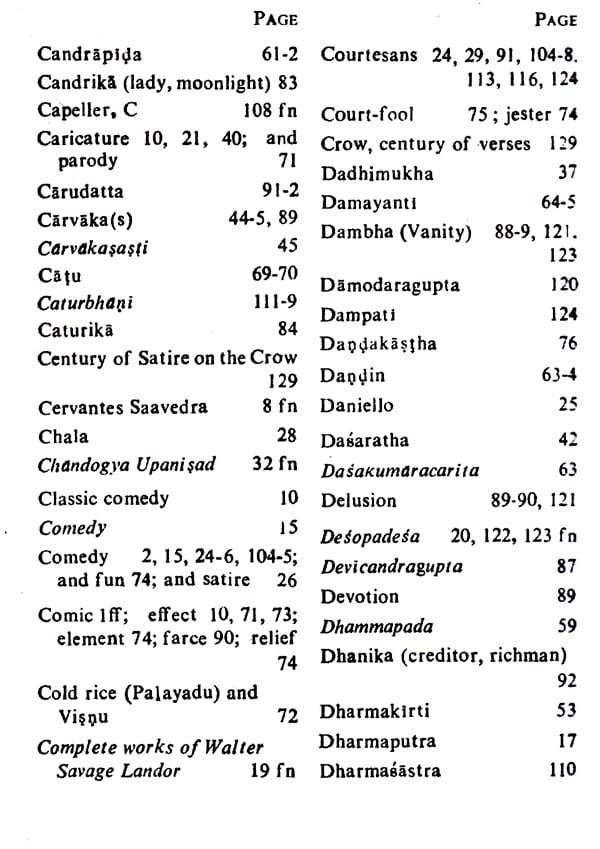
The Comic Element in Sanskrit Literature
Book Specification
| Item Code: | NAY026 |
| Author: | V. Raghavan |
| Publisher: | Dr. V Raghavan Institute of Performing Arts, Chennai |
| Language: | English |
| Edition: | 2022 |
| Pages: | 178 |
| Cover: | PAPERBACK |
| Other Details | 7.00 X 4.80 inch |
| Weight | 140 gm |
Book Description
Dr. Raghavan has taken a single element of emotion - comic and has made an in-depth analysis, citing copious illustrations from almost all related Sanskrit literature, evidencing his width and depth of knowledge in Sanskrit. His approach is logical and scientific. He also compares theoretical background with Western experts and psycholo-gists like S. Freud and others.
Starting from Bharata's Natyasatra which is the earliest treatise on drama, the author has brought forth the comic elements`in Vithyangas, Nataka, Prakarana, Vedic literature, epic Ramayana, Advaitic dialectics, Nyayas, Naisadha Kavya, Catus, Kalidasa's characterisation of Vidusakas, Mrcchakatika and many other literatures.
The author takes as to a new world of comic with exquisite exposition of events of comic. Bharata's classification of laughter into six kinds and analysis of the causes of laughter are superb. Satire, irony, sarcasm, punning and their association with wit and humour are vividly described. He makes an elaborate analysis of satire and we are surprised to read that even our deities like Siva, Visnu, and Brahma are also subjected to healthy satire. So also, the systems of Indian philosophy including Vedanta, Nyaya, Buddhism and Jainism are also not spared.
In short, the book is a succinct epitome on the emotion of comic element in Sanskrit literature and takes us to the heights of peeling laughter and fun.
I am happy to place on record my sincere appreciation and congratulate the author on his bringing out this educative and excellent contribution to Sanskrit Literature.
This book, mainly based on lectures delivered by the late Dr. V. Raghavan at Oxford in 1953 and Chicago in 1964, is a serious attempt at a comprehensive survey of the theory and practice of the comic element in Sanskrit literature in comparsion with that in the West. He did not publish it during his lifetime, perhaps because he wanted to make it more comprehensive and thorough. Students of Sanskrit literature will be thankful to his student, Dr. S. S. Janaki, for publishing it with necessary checking of sources etc.
Humour has a universal appeal throughout the world irrespective of age, education and status and does not require any special training for its enjoyment. But in literature the subtle point of a joke may depend on double entendre, twisted etymology or the contextual background which can be properly understood and appreciated only with the help of scholarship. Anandavardhana says that propriety is the soul of Rasa, but as for as Hasps is concerned, lack of propriety seems to be its life According to the generally accepted theory of Rasa explained by Abhinava-gupta the locus of Rasa is in the imaginative faculty of the Sahrdaya: hence Bharata's distinction of humour as Atmastha and Parastha (residing in oneself and residing in another) seems irrelevant. Abhinava criticises this view as asst (wrong), and says that such a distinction is possible only in the case of the Vibhava and not of the Rasa.
The Samskrita Ranga, Madras is indeed happy and privileged to bring out on the occasion of the 81st birthday of its founder-president, the late Dr. V. Raghavan, Isis hitherto unpublished work on "the Comic Element in Sanskrit Literature". In this interesting work Dr. Raghavan, with all the weight of his learning and experiential know-ledge, has given us a definitive monograph on the subject. His wide reading of all important Western thinkers like Aristotle, Lander, Hobbes, Bergson and Huxley, along with psychologists and critics like Freud, Herbert Spencer, Spingarn, Hazlitt, Ridgeway and Meredith provides the useful comparative aspects of the subject.
**Contents and Sample Pages**
